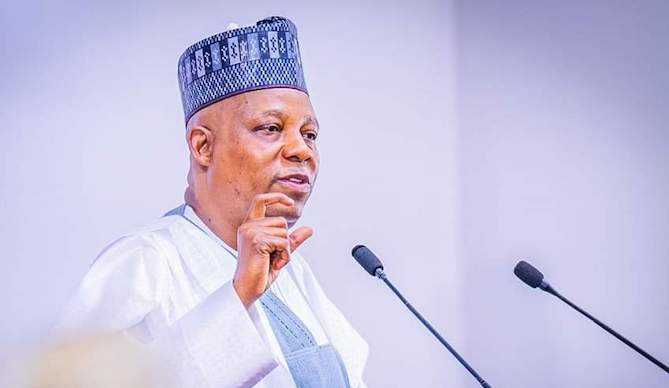Nigeria’s Federal Government has stated that achieving the nation’s energy transition by 2060 will require annual investments of approximately $10 billion, amounting to $360 billion over the next 36 years. Vice President Kashim Shettima, represented by Sadiq Wanka, Special Adviser to the President on Power and Infrastructure, made this announcement at the Energy Transition Symposium in Abuja, organized by Development Agenda Magazine.
Shettima emphasized the necessity of maximizing petroleum resources in the short term to support economic growth. He acknowledged the challenges of implementing the Nigeria Energy Transition Plan but stressed the importance of both local efforts and international collaboration to secure financing and prepare the Nigerian workforce for a Net-Zero economy.
“Funding the energy transition requires investments of over $10 billion per year up to 2060. With 45 percent of Nigerians lacking access to electricity and GDP per capita that is half of Egypt’s and a third of South Africa’s, improving the economic conditions for Nigerians is urgent,” Shettima stated. He highlighted the critical environmental considerations that must be managed to achieve these goals.
Shettima pointed out that most of the required funding would come from the private sector, including initiatives to access high-integrity carbon markets. He expressed confidence in the administration of President Bola Ahmed Tinubu to make difficult decisions, leveraging Nigeria’s rich resource base and human capital.
The Vice President also noted the two-pronged strategy of pursuing renewables alongside oil and gas investments, which has led to significant progress. This includes the Climate Change Act of 2021 and recent advancements in hydroelectric power, such as the 700MW Zungeru Hydropower plant coming online in 2024. The Electricity Act 2023, signed by President Tinubu, further supports the transition to a more renewable energy mix.
Governor Uba Sani of Kaduna State, represented by Idris Aminu Idris, Managing Director of Kaduna Power Supply Company (KAPSCO), highlighted the state’s unique approach of prioritizing people in its development plans. He discussed the Kaduna Solar for Health program, which aims to provide sustainable, uninterrupted power to healthcare centers and clinics, ultimately expanding to rural general hospitals across the state.
Paddy Ezeala, Editor-in-Chief of Development Agenda Magazine, explained that the symposium aimed to explore the impacts of the Energy Transition movement on Nigerians, particularly those at the grassroots and affected by extractive industry activities.
“Speakers at today’s event are discussing how the Energy Transition movement is likely to affect Nigerians, especially those impacted by fossil fuels extraction or those affected by extraction of minerals powering clean energy, such as lithium and cobalt,” Ezeala said.
The symposium underscored the significant financial and collaborative efforts required for Nigeria to achieve its ambitious energy transition goals, while also addressing the socio-economic and environmental impacts on its population.
